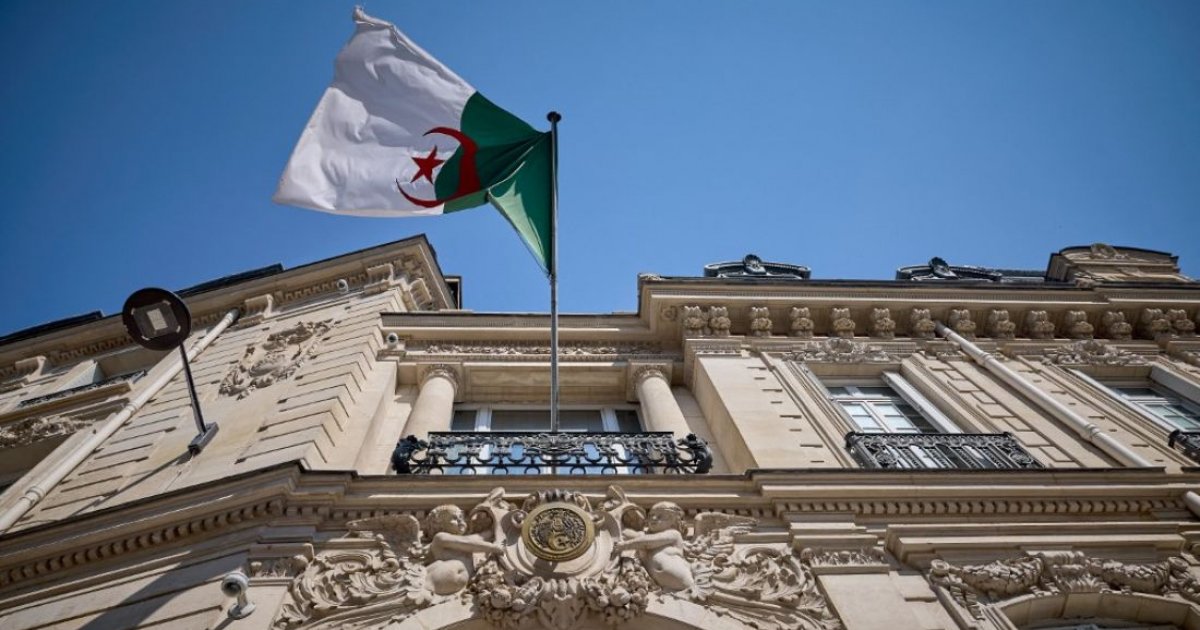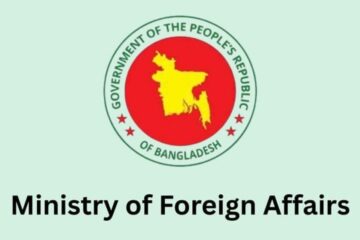Algeria is preparing to commemorate the 71st Anniversary of the outbreak of the glorious revolution of November 1, 1954. The observance of this momentous historic event stands as a powerful reminder of one of the most defining anti-colonial struggles of the 20th century. It honors not only the birth of a revolution but also the endurance of a people who sacrificed everything to reclaim their freedom after 132 years of French colonial rule.
On November 1, 1954, the National Liberation Front (FLN) launched simultaneous attacks across Algeria — targeting military posts, police stations, and communication centers — marking the start of an eight-year war that would change the course of Algerian and global history. What began with only a few hundred fighters soon evolved into a nationwide uprising that ultimately ended in independence on July 5, 1962.
This anniversary is more than a historical remembrance; it is a celebration of courage, unity, and the unbreakable will of a nation determined to be free.
Why the Algerian Revolution Stands as the Greatest Example of Revolution
At its heart, the Algerian Liberation Revolution remains one of history’s most compelling examples of a revolution rooted in justice, sacrifice, and moral integrity. Unlike many uprisings defined solely by political power struggles, the Algerian revolution was a moral and civilizational awakening — a struggle against dehumanization itself. It was the voice of a people who refused to be erased.
What makes this revolution the greatest example of liberation is its dual victory: not only did it achieve independence through armed struggle against one of the world’s major colonial powers, but it also reshaped international law and diplomacy by advancing the principle of self-determination at the United Nations. Algeria’s revolution transformed anti-colonial resistance into a legitimate and universal right.
The Context of Colonial Algeria
Unlike other French colonies, Algeria was considered an integral part of France itself, divided into departments and administered as if it were European soil, which made its liberation struggle not only a fight for independence, but also a quest for identity, dignity, and existence.
Under French rule, which began in 1830, Algeria endured more than a century of land confiscation, cultural suppression, and systemic inequality. The European settlers (pied-noirs) monopolized fertile lands and wielded exclusive political power, while indigenous Algerians were stripped of citizenship and subjected to discriminatory codes such as the Code de l’Indigénat, which institutionalized racial and economic subjugation.
Entire communities were displaced, Arabic language and culture were marginalized, and education for native Algerians was deliberately restricted to maintain dependence and subordination. Out of this long night of oppression emerged the early stirrings of nationalism — movements such as the Star of North Africa (Étoile Nord-Africaine) in the 1920s — that paved the way for the National Liberation Front (FLN). The FLN embodied the collective will of a people determined to reclaim their land, their voice, and their humanity.
The Outbreak and Course of the Revolution
The “Toussaint Rouge” (Red All Saints’ Day) attacks on November 1, 1954, marked the official start of the revolution. The FLN’s message, broadcast through leaflets, declared:
“The restoration of the Algerian state, sovereign, democratic, and social, within the framework of Islamic principles.”
As the FLN’s guerrilla campaign intensified, France responded with overwhelming force. Villages were burned, civilians were rounded up, and mass arrests became common. The French army deployed nearly 500,000 soldiers and implemented a “scorched-earth policy,” including torture and summary executions.
The revolution was marked by tragic and defining events such as the Philippeville Massacre (August 20, 1955), where over 12,000 Algerians were killed, the Battle of Algiers (1956–1957), and the Sakiet Sidi Youssef bombing (1958), which exposed the brutal realities of colonial repression. These atrocities not only deepened Algerian resistance but also galvanized global outrage and sympathy for Algeria’s fight for independence.
By the end of the war, an estimated 1.5 million Algerians had died (including both combatants and civilians), and millions more were displaced or imprisoned in internment camps. The human suffering was immense — entire villages destroyed, families torn apart, and survivors scarred by trauma and poverty.
The Role of Algerian Diplomacy in Changing the Course of the Revolution
While the FLN fought courageously on the battlefield, Algeria’s diplomacy became the revolution’s second front — equally decisive and visionary. Through tireless lobbying, the FLN’s Provisional Government of the Algerian Republic (GPRA) gained recognition and support from newly independent states, the Non-Aligned Movement, and even Western sympathizers who condemned France’s atrocities.
This diplomatic offensive isolated the colonial power internationally, framing the conflict not as a domestic “rebellion,” as Paris claimed, but as a legitimate war of national liberation. The FLN’s envoys in Cairo, Tunis, New York, and Belgrade gave Algeria a global voice long before its independence. By 1961, world opinion had decisively shifted in favor of Algerian independence — a triumph of moral diplomacy over colonial propaganda.
The Role of International Solidarity
The Algerian Revolution eventually became a beacon for liberation movements in Africa, Asia, and Latin America. Newly independent nations such as Egypt and Tunisia provided the FLN with logistical support and diplomatic backing. At the same time, the Non-Aligned Movement, founded in 1955 at the Bandung Conference, hailed Algeria’s struggle as a symbol of Third World solidarity. Socialist countries like the Soviet Union, China, and Yugoslavia offered weapons, training, and political recognition.
Inside France, opposition to the war grew. Prominent intellectuals — Jean-Paul Sartre, Simone de Beauvoir, and members of the Manifesto of the 121 — denounced the government’s use of torture and repression. Massive student and worker protests shook French cities, forcing the issue into the open.
Internationally, Algeria’s cause gained traction at the United Nations, where the FLN successfully framed the war as a fight for self-determination. Mounting global pressure and the FLN’s military resilience eventually compelled France to negotiate, leading to the Evian Accords (March 1962) and Algeria’s long-awaited independence.
The Legacy and Suffering
The war left deep scars on Algerian society. Beyond the 1.5 million dead, hundreds of thousands were wounded, and many suffered lifelong psychological trauma. Villages were razed, over 2 million people were forcibly relocated into “regroupment camps,” and countless women were victims of violence or forced displacement.
Yet from this suffering emerged an indomitable national spirit. Independence brought the end of colonization but also the challenge of rebuilding a shattered nation. The FLN transitioned from a liberation front into the ruling party, tasked with forging a unified identity from the ruins of war.
The revolution’s victory inspired liberation movements in Mozambique, Angola, Namibia, Palestine, and South Africa, reinforcing Algeria’s role as a moral and political leader in the global South. The country became a hub for anti-colonial activists, offering training, refuge, and diplomatic support to freedom fighters worldwide.
Algerian Diplomacy Today: A Legacy of Peace and Principle
The spirit of the revolution endures in Algeria’s foreign policy today. Rooted in the values of peace, self-determination, dignity, and justice, Algerian diplomacy rejects domination, division, and conflict. It continues to champion the same ideals that defined its liberation struggle — standing with oppressed peoples and advocating for negotiated, peaceful solutions to global crises.
Algeria plays a constructive and stabilizing role in the Sahel, Libya, and neighboring regions, mediating internal disputes and fostering reconciliation among divided communities. Its commitment to non-interference and regional dialogue reflects the maturity of a diplomacy forged in the crucible of struggle.
Moreover, Algeria’s strategic position in the Mediterranean as a key energy partner strengthens cooperation between Africa, Europe, and the Arab world — contributing to collective security and sustainable development. Its ongoing efforts to combat terrorism, extremism, and illegal migration highlight a visionary and responsible diplomacy, rooted in solidarity and international law.
Conclusion: Looking to the Future
Algeria has made substantial progress since 1962; however, the legacy of the war is not without its challenges. Although Algeria continues to grapple with the aftermath of colonialism, including political instability, economic struggles, and social unrest, the lessons of the liberation war — unity, sacrifice, and perseverance — remain guiding principles for confronting the future.
The 71st anniversary of the outbreak of the Liberation Revolution of Algeria is not merely a remembrance of history — it is a living testament to the strength of a people who transformed suffering into sovereignty. It reminds the world that freedom is neither given nor forgotten; it is earned through courage, sacrifice, and unwavering hope.
The commemoration of this anniversary is also a reflection on the unfinished work of independence. It urges Algerians — particularly the youth — to honor the legacy of their forebears by building a just, inclusive, and forward-looking society.
As Algeria continues to evolve, the resolute spirit of November 1, 1954 endures — inspiring new generations to uphold the values of justice, unity, and independence that shaped the nation and influenced the course of global decolonization. Through its principled diplomacy and enduring commitment to peace and solidarity, Algeria continues to embody the revolutionary spirit — not only in memory, but in action.
Sakhawat Khan is a former Senior Humanitarian Coordinator, Eastern and Horn of Africa, United Nations.



